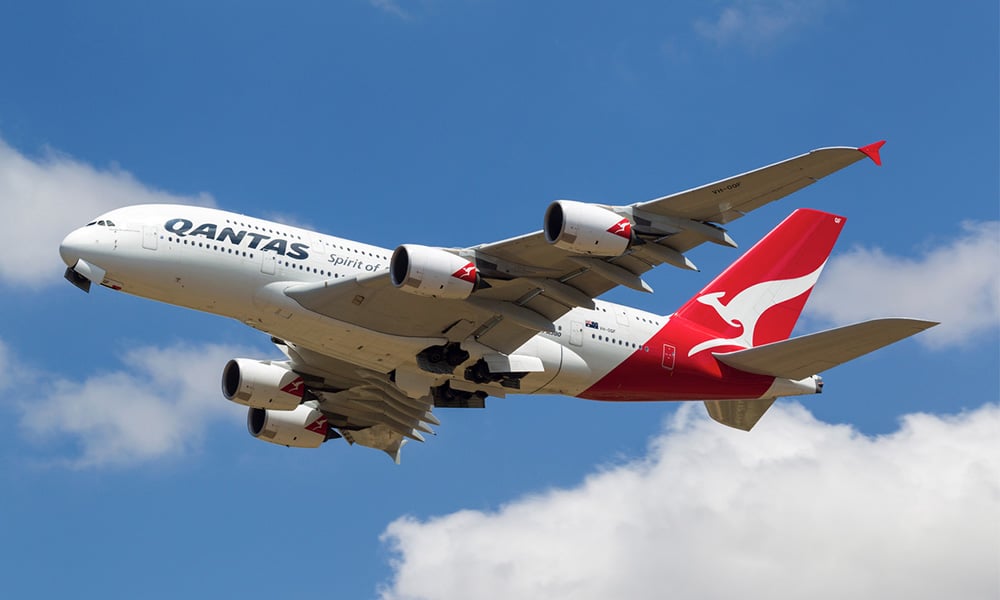
The airline has been hit hard by closed international borders

Qantas has recorded a $1.08 billion loss over six months, the airline revealed today.
The company has been hit hard by the COVID-19 pandemic after it was forced to ground most of its fleet amid international border closures.
Revenue fell by 75% compared to the same six-month period to December 31 last year.
Qantas chief executive Alan Joyce said the figures were “stark but not surprising”.
“During the half we saw the second wave in Victoria and the strictest domestic travel restrictions since the pandemic began,” he said.
“Virtually all of our international flying and 70 per cent of domestic flying stopped, and with it went three-quarters of our revenue.”
The airline still has $4.2 billion in liquid capital to keep it afloat until international borders reopen, but the Morrison government has yet to indicate when that might happen.
Qantas has come up against the unions a number of times in the last year over job losses, outsourcing, and its use of JobKeeper payments.
In November, the airline announced 2,000 job losses amid plans to outsource ground handling at 10 airports across Australia.
Qantas was also accused of misusing JobKeeper payments in a Federal Court ruling, but that decision was later quashed on appeal.
It opened Qantas, and many other businesses in Australia, to the prospect of backpaying employees.
The unions had accused Qantas of manipulating the JobKeeper payments, using penalty rates paid in arrears to offset the portion of the subsidy needed to make up the $1,500 fortnightly wage.
In January this year, the unions lodged a High Court challenge over the issue in the hope of overrulling the Federal Court appeal.
Qantas has always denied doing anything wrong, saying the company followed the ATO guidance in issuing JobKeeper to its staff.
Despite the billion-dollar net loss, Qantas says other parts of the businesses have helped to lower the revenue drop which was initially projected at $6.9 billion.
"When we had the opportunity to fly domestically, we saw significant pent up travel demand and generated positive cash flow," Joyce said.
“Qantas Loyalty still had significant income because the program has evolved to the stage where the vast majority of points are earned from activity on the ground. Qantas Freight had a record result and has been a natural hedge to the lack of international passenger flying, which has created a shortage of cargo space globally.
“These factors couldn’t overcome the massive impact of this crisis, but they have softened it."
He said the start of the vaccine roll-out in Australia has given the aviation industry hope of restarting later this year.